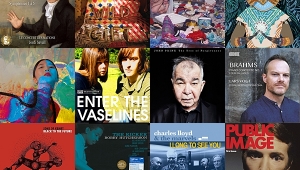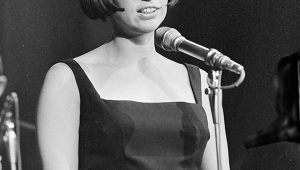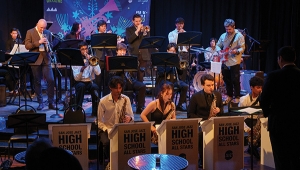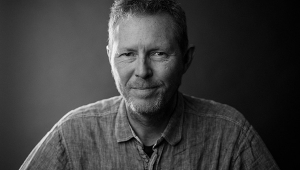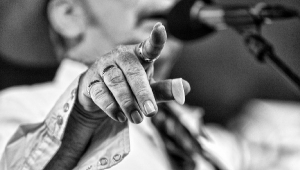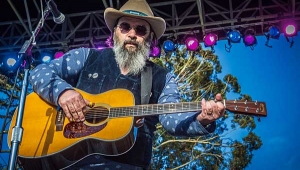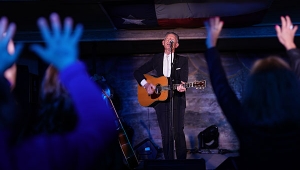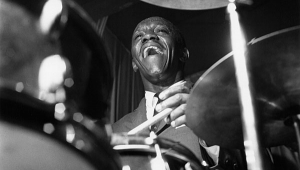| Columns Retired Columns & Blogs |
Building a Library: The Grateful Dead Page 7
In Workingman's Dead the Dead taught empathy. Perhaps that's the core of what they do, or is simply what music itself enables. It's no wonder that transportation metaphors of cars, buses, trains, and planes thread their way through the Grateful Dead repertoire, because each of these vehicles gives you a different perspective of the lay of the land. Back in Anthem of the Sun, "The bus came by and I got on, that's when it all began." We not only have the dream/reminiscences of Bob Weir meeting Neal Cassady (the real-life Dean Moriarity of Jack Kerouac's On the Road), but we step through the great window to the American urban experience: When you board a bus, it ponderously wends its way through all neighborhoods, whether from suburb to city or across the country. The bus's lumbering pace allows you to see, forces you to see how others live...there are no short cuts on the bus, no darting in and out of lanes. Even the hit movie Speed shows the bus as a great equalizer.
Footnote 14: "Stella Blue," by Garcia-Hunter, from Wake of the Flood.
In Workingman's Dead the bus takes you on a journey through the landscape of a blue-collar world, exposing and requiring you to think and appreciate the value of your labor. The band taps into the strength of the American Folktale with its roots in Paul Bunyanesque largesse, its massive sense of right, endurance, and faith. American Beauty (1970) continues this exploration of Americana.
Revisiting Wake of the Flood (1973) this time round, I somehow see dog-eared copies of the Tao Te Ching and the Bhagavad Gita. The message here is one of letting go. With that we see the landscape of both heart and mind: the relationship to the land, American bounty, the Buddhist concept of spiritual freedom meeting the American entitlement to personal liberty. This is an album of great joy and sentience. What remains in the Wake of the Flood is our power of observation: we look at the lay of the land, the tales of its people, and they are us. A flood is another of the great equalizers; in the wake of it there is no longer a "them" or an "us," no tribal individuation run amuck into divisions of race, class, gender, or war---all petty in the face of God/Nature.
Musically, the Grateful Dead are the masters of the lope, even with a half-step. Wake of the Flood opens with that relaxed gait. It's the looseness you need for yoga or a good golf swing---effortless and natural because there is no tension, just a smooth, liquid pace. The A-minor/D/G/G7 intro to "Mississippi Half-Step Toodleoo" has just a bit of bounce before it settles into a natural groove. Again, the philosophy: "If all you got to live for is what you left behind / Then get yourself a powder charge and seal that silver mine." Positivity overcomes, it's there for you. The violin solo throughout the chorus has wonderful bowing by Vassar Clements, the great bluegrass fiddle player.
"Row Jimmy Row" sustains the ease, with a guiro providing an edginess: "Broken heart don't feel so bad, / you ain't got half of what you thought you had..."
"Stella Blue" shows off Garcia's voice. There is no reaching here; again, with backbone slipped, it illustrates the control that he sometimes possessed, and evocative tenderness, plaintiveness, a disarming gentleness. Its theme is letting go:
It all rolls into one and nothing comes for free
There's nothing you can hold, for very long
And when you hear that song come crying like the wind
It seems that all this life was just a dream (footnote 14).
This is reminiscent of the Hua Hu Ching:
Simply be aware of the oneness of things...
Let the fiction of life and death go.
Just remain in the center, watching.
And then forget you are there (footnote 15).
The sound of the piano keys evokes the aural image of the tinkling of ice cubes in the fallen angel's glass.
Footnote 14: "Stella Blue," by Garcia-Hunter, from Wake of the Flood.
Footnote 15: Hua Hu Ching, Brian Walker, trans., HarperCollins, 1992.
- Log in or register to post comments
